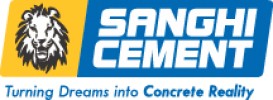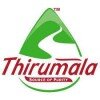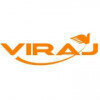Boiler Operator
40+ Boiler Operator Interview Questions and Answers

Asked in Shree Cement

Q. How do you ensure safe operation, shutdown, and startup procedures?
Safe operation and shutdown/startup procedures are crucial for boiler operators to prevent accidents and ensure efficiency.
Follow manufacturer's instructions and guidelines for safe operation.
Regularly inspect and maintain equipment to prevent malfunctions.
Properly shut down the boiler by following the correct procedure to avoid damage.
During startup, ensure all safety measures are in place before turning on the boiler.
Train all personnel on safe operation and emergency proce...read more

Asked in Sanghi Industries

Q. How do you align the gauge glass in a steam drum?
To line up the gauge glass in a steam drum, follow these steps:
Ensure the steam drum is depressurized and cooled down
Remove any obstructions or debris from the gauge glass openings
Align the gauge glass with the corresponding openings on the steam drum
Secure the gauge glass using appropriate gaskets and bolts
Tighten the bolts evenly to ensure a proper seal
Check for any leaks or abnormalities in the gauge glass
If necessary, adjust the alignment by loosening and repositioning th...read more

Asked in Shree Cement

Q. How do you report to your seniors?
Report to seniors by providing clear and concise updates on boiler operations and maintenance.
Provide regular updates on boiler performance and any issues encountered
Communicate any maintenance or repair needs promptly
Seek guidance or approval for any major decisions or changes in operation
Document all activities and reports for reference
Be open to feedback and suggestions for improvement

Asked in FIL Industries

Q. What is multi tube boiler..? What is fire tube boiler...? What is water analysis in Boiler...?
A multi-tube boiler is a type of boiler that has multiple tubes for the passage of hot gases and water.
A multi-tube boiler consists of several tubes through which hot gases and water pass.
These tubes are arranged in a way that maximizes heat transfer and efficiency.
Examples of multi-tube boilers include Babcock and Wilcox boiler and Cochran boiler.

Asked in Tirumala Milk Products

Q. What type of boiler have you worked with?
I have worked with various types of boilers including fire-tube, water-tube, and electric boilers.
Fire-tube boilers are commonly used for low-pressure steam and hot water applications.
Water-tube boilers are used for high-pressure applications and can handle a wide range of fuels.
Electric boilers are efficient and easy to maintain, but are typically used for smaller applications.
Asked in Meridian

Q. What boiler emergencies have you faced during boiler operations?
I have encountered various boiler emergencies, including pressure surges, water level issues, and fuel supply interruptions.
Pressure surges: Experienced a sudden increase in pressure due to a malfunctioning safety valve, requiring immediate manual intervention.
Low water level: Faced a situation where the water level dropped dangerously low, prompting activation of the low-water cutoff system.
Fuel supply interruption: Encountered a disruption in fuel supply that led to a tempo...read more
Boiler Operator Jobs



Asked in Gypmart

Q. How much experience do you have in operation and maintenance?
I have 5 years of experience in operation and maintenance of boilers.
I have 5 years of hands-on experience in operating and maintaining boilers.
I am familiar with troubleshooting common boiler issues and performing routine maintenance tasks.
I have a strong understanding of boiler safety protocols and regulations.
I have completed training courses in boiler operation and maintenance.
I have successfully managed boiler operations in previous roles, ensuring efficient and safe per...read more
Asked in Viaton Energy

Q. What is the function of a superheater?
The function of a superheater is to increase the temperature of steam produced by the boiler to improve efficiency and prevent condensation in the steam lines.
Increases the temperature of steam to improve efficiency
Prevents condensation in the steam lines
Helps in achieving higher thermal efficiency of the boiler
Can be located in the combustion chamber or after the primary superheater
Examples: radiant superheaters, convection superheaters
Share interview questions and help millions of jobseekers 🌟

Asked in Visag BioFuels

Q. What is a boiler?
A boiler is a closed vessel in which water or other fluid is heated to generate steam or hot water.
Boilers are used in various industries for heating purposes.
They work by transferring heat from a fuel source to the water or fluid inside the boiler.
The generated steam or hot water can be used for heating buildings, powering engines, or industrial processes.
Boilers can be fueled by various sources such as natural gas, oil, coal, or biomass.
Examples of boilers include steam boi...read more
Asked in RSA INDUSTRIES

Q. What is the working principle of a boiler?
A boiler generates steam or hot water by heating water using fuel combustion or electricity.
Heat Generation: Fuel (like natural gas, oil, or coal) is burned to produce heat.
Water Heating: The heat transfers to water in the boiler, raising its temperature.
Steam Production: As water heats, it converts to steam, which can be used for power or heating.
Pressure Control: Safety valves and controls maintain safe pressure levels within the boiler.
Types of Boilers: Examples include fi...read more

Asked in Jindal Pipes

Q. What are the different types of boilers?
There are various types of boilers including fire-tube, water-tube, electric, and biomass boilers.
Fire-tube boilers: Water is heated inside tubes and hot gases surround them.
Water-tube boilers: Water flows through tubes that are surrounded by hot gases.
Electric boilers: Heat is generated using electricity.
Biomass boilers: Use organic materials like wood chips or pellets to generate heat.
Asked in Viaton Energy

Q. What is the purpose of ID?
Id is used to uniquely identify a specific entity or record.
Id is commonly used in databases to uniquely identify each record in a table.
It helps in efficiently retrieving, updating, and deleting specific records.
Id can be a combination of letters, numbers, or special characters.
For example, in a customer database, each customer may have a unique Id assigned to them.

Asked in NTPC

Q. What are the components of a boiler tube?
Components of boiler tube include water walls, superheater tubes, economizer tubes, and steam drum.
Water walls: Absorb heat from the combustion gases to generate steam.
Superheater tubes: Increase the temperature of the steam produced by the boiler.
Economizer tubes: Preheat the feedwater before it enters the boiler.
Steam drum: Separates steam from water in the boiler system.
Asked in Viaton Energy

Q. What is a soot blower?
A soot blower is a device used to remove soot or ash buildup from boiler tubes to maintain efficiency.
Soot blowers can be either steam or air powered.
They are typically mounted on the boiler walls or superheaters.
Soot blowers help prevent the buildup of soot, which can decrease heat transfer efficiency.
Examples of soot blower manufacturers include Clyde Bergemann Power Group, Diamond Power International, and B&W Megtec.
Asked in Viaton Energy

Q. What is the purpose of FD?
The purpose of FD is to supply air for combustion in the boiler.
FD stands for Forced Draft, which is a fan that supplies air under pressure to the boiler for combustion.
It helps in maintaining the proper air-fuel ratio for efficient combustion.
FD fans are essential for creating a positive pressure in the furnace, ensuring proper flow of combustion gases.
Without FD, the combustion process in the boiler would be inefficient and incomplete.
Asked in Visag BioFuels

Q. What is CHP and fules and valves
CHP stands for Combined Heat and Power, a system that generates electricity and useful heat simultaneously.
CHP systems improve energy efficiency by utilizing waste heat.
Common fuels for CHP include natural gas, biomass, and coal.
Valves in CHP systems control the flow of steam, water, and gases.
For example, a steam valve regulates steam pressure in turbines.

Asked in Triveni Engineering & Industries

Q. Steam drum in total spaire part?
Steam drum spare parts include level gauges, safety valves, blowdown valves, and pressure switches.
Level gauges
Safety valves
Blowdown valves
Pressure switches

Asked in Shree Cement

Q. How do you handle blackouts and startups?
Handling a blackout involves immediate response to restore power and ensure safety in boiler operations.
Assess the situation: Check for alarms or indicators that signal the blackout's cause.
Initiate emergency protocols: Follow the established procedures for a blackout, including notifying the control room.
Evaluate boiler status: Ensure the boiler is in a safe condition before attempting to restart.
Restart sequence: Follow the manufacturer's guidelines for restarting the boile...read more
Asked in Talbros Marugo Rubber

Q. What is the boiler Air Preheater (APH) system?
The boiler Air Preheater (APH) system is a heat exchanger used to preheat the combustion air before it enters the boiler to improve efficiency.
APH system helps in recovering waste heat from the flue gases and transferring it to the combustion air.
It reduces fuel consumption and increases boiler efficiency.
Common types of APH systems include tubular, plate, and rotary air preheaters.
APH systems are essential in industrial boilers to optimize energy usage.
Asked in Meridian

Q. What are the boiler safety rules?
Boiler safety rules ensure safe operation, maintenance, and emergency procedures to prevent accidents and ensure efficiency.
Always check water levels before starting the boiler to prevent overheating.
Regularly inspect safety valves to ensure they are functioning correctly.
Maintain proper pressure levels; for example, do not exceed the manufacturer's recommended pressure.
Conduct routine maintenance and cleaning to prevent buildup of scale and sludge.
Ensure all safety interlock...read more

Asked in Krishna Tissues

Q. What are the equipment specifications?
Specifications of equipment refer to the detailed description of the equipment's features, dimensions, materials, and performance criteria.
Specifications include dimensions, materials used, capacity, power requirements, and performance criteria.
They are typically outlined in technical documents or manuals provided by the manufacturer.
Specifications help ensure that the equipment meets the necessary requirements for its intended use.
For example, a boiler may have specification...read more

Asked in NTPC

Q. How many types of power plants are there?
There are several types of power plants, including coal, natural gas, nuclear, hydroelectric, wind, solar, and geothermal.
Coal power plants
Natural gas power plants
Nuclear power plants
Hydroelectric power plants
Wind power plants
Solar power plants
Geothermal power plants
Asked in Talbros Marugo Rubber

Q. What are the types of safety valves used for boilers?
Safety valves commonly used for boilers include spring-loaded safety valves, pilot-operated safety valves, and power-actuated safety valves.
Spring-loaded safety valves are the most common type used for boilers, operating based on the force of a spring to open the valve at a set pressure.
Pilot-operated safety valves use a pilot valve to control the opening and closing of the main valve, providing more precise pressure control.
Power-actuated safety valves are operated by an ext...read more
Asked in Kamachi Steels

Q. Tell me about water parameters.
Water parameter refers to the various physical and chemical characteristics of water that affect its quality and suitability for specific uses.
Water parameters include pH, temperature, dissolved oxygen, total dissolved solids, turbidity, and conductivity.
These parameters can vary depending on the source of the water and its intended use.
For example, drinking water should have a pH between 6.5 and 8.5, while water used for industrial processes may require a specific level of c...read more

Q. What is the safety valve setting for a boiler with a working pressure of 12.5?
Setting a safety valve for a boiler operating at 12.5 bar ensures safe pressure management and prevents overpressure situations.
Safety valves are critical for preventing boiler explosions by releasing excess pressure.
For a boiler with a working pressure of 12.5 bar, the safety valve should be set slightly above this pressure, typically around 13 bar.
Regular testing and maintenance of safety valves are essential to ensure they function correctly when needed.
Example: If the saf...read more

Asked in Triveni Engineering & Industries

Q. What is the material composition of a superheater tube?
Super heater tubes are typically made of alloy steel to withstand high temperatures and pressures.
Super heater tubes are commonly made of materials like T11, T22, T91, etc.
Alloy steel is preferred for its high temperature and pressure resistance.
The material composition may vary based on the specific requirements of the boiler system.
Asked in Visag BioFuels

Q. What is boiler mountain
Boiler mountain refers to the accumulation of steam and pressure in a boiler system, indicating potential operational issues.
Boiler mountain can indicate excessive pressure buildup.
It may lead to safety hazards if not managed properly.
Regular maintenance can prevent boiler mountain occurrences.
Example: A boiler operating above its design pressure can create a 'mountain' of steam.

Asked in Triveni Engineering & Industries

Q. Dearetor in chemical dosing %?
Dearetor in chemical dosing % refers to the percentage of chemical dosing in the deaerator system.
Dearetor in chemical dosing % is the amount of chemical added to the deaerator system to prevent corrosion and scale buildup.
The percentage of chemical dosing can vary depending on the specific requirements of the system and the type of chemicals being used.
For example, a typical range for chemical dosing in a deaerator system might be between 0.5% to 2% of the total water flow.
M...read more

Asked in Triveni Engineering & Industries

Q. What is the acceptable range for total oxygen percentage?
Slop in total oxygen % refers to the amount of oxygen present in the slop being used in the boiler operation.
Slop in total oxygen % is an important parameter to monitor in boiler operation as it affects combustion efficiency.
High levels of oxygen in slop can indicate incomplete combustion, leading to energy loss and increased emissions.
Regular monitoring and adjustment of oxygen levels in slop can help optimize boiler performance and reduce environmental impact.

Asked in Triveni Engineering & Industries

Q. What is the steam speed in a superheater?
Super heater steam speed is the velocity at which steam flows through the super heater tubes.
Super heater steam speed is typically measured in meters per second or feet per minute.
Higher steam speeds can increase heat transfer efficiency in the super heater.
Proper steam speed is crucial to prevent overheating or underheating of the super heater tubes.
Interview Questions of Similar Designations
Interview Experiences of Popular Companies








Reviews
Interviews
Salaries
Users
















